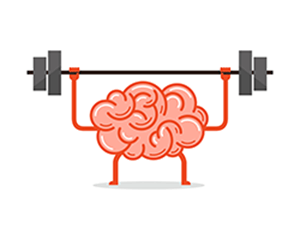Building Mental Resilience
What Is Mental Resilience?
The American Psychological Association (APA) defines resilience as “the process of adapting well in the face of adversity, trauma, tragedy, threats or significant sources of stress.” In simpler terms, it’s like riding a rollercoaster (life!) with its high-effort climbs, heart-racing falls, and peaceful stretches of straight rails in-between. You can’t control where you go, but you can learn to enjoy the ride.
Mental resilience is a skill that anyone, at any age, can learn.
Mental Resilience Includes;
- Being flexible in uncertain circumstances
- Embracing change positively
- Solving problems with critical thinking skills
- Recognizing and nurturing your body’s needs
- Finding healthy outlets for stress
Mental resilience is not;
- Solving problems alone
- Pushing past your body’s needs
- Ignoring environmental triggers
- Taking on more than you can reasonably accomplish
- Taking stress out on others
Mental, emotional and physical resilience are all interconnected – building mental resilience has been shown to help build immunity to infection and helps us to absorb the emotional and physical wear and tear we sustain throughout a normal lifetime.
Tips for Building Mental Resilience
Focus on What You Can Control
We can’t control what happens around us, but we can learn to manage our response to it. For example, try to avoid worrying about what’s happening with the world and place your focus on what you can do about it or how you might be able to deal with it.
Change Your Environment
It can often help remove yourself temporarily from a stressful situation to allow yourself to get back your “mental balance”. Taking a break from your desk for a few minutes to get some fresh air can allow you the chance you need to gather your thoughts. This can help avoid burnout.
Create Simple Routines
Creating a routine allows us to have control over many aspects of our daily lives. With a routine in place, we need to make fewer decisions each day, reducing mental fatigue.
Lean on Your Support System
Tell someone you can trust how you feel. Getting advice and feeling empathy can help to boost us and give us the support we need.
Limit Negativity
Keep up to date with what’s happening in the world by watching or reading the news – then turn it off! Constantly scrolling through bad news on your device allows the negativity to accumulate and burden you.
Get Exercise
Getting exercise will build your physical resilience, and this will have the added benefit of helping your mental resilience. You’ll always feel better about yourself after some light exercise.
Sleep
Often when we’re stressed, sleep is the first casualty, whether through perceived lack of time or through worry. Allow yourself “wind down time”, like when you were a child, to give yourself the best chance of a restful night. Sleep allows your brain to process your problems and makes you much more productive the next day.







